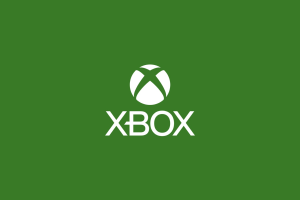The immersive worlds of video games beckon with thrilling adventures and endless possibilities. But while we lose ourselves in these digital landscapes, a lurking danger often goes unnoticed: the insidious threat to our privacy and data security. As data collection becomes increasingly intertwined with the gaming experience, understanding and defending against these concerns is crucial for every gamer.
The Landscape of Data Collection in Gaming
Modern games collect a surprising amount of information about players. This can include:
- Personal details: Username, email address, age, demographics.
- Gameplay data: Game progress, achievements, statistics, preferences.
- Device information: Hardware specifications, software configuration, IP address.
- In-game behavior: Chat logs, voice recordings, purchase history, online interactions.
This data is used for various purposes, including:
- Personalization: tailoring the game experience to individual preferences.
- Targeted advertising: displaying relevant ads within the game or on related platforms.
- Analytics and market research: understanding player behavior and improving future games.
- Fraud prevention: combating cheating and illegal activities.
While some data collection is inevitable, the lack of transparency and control often raises concerns. Players worry about:
- Unauthorized data sharing: Who has access to your data, and how is it used?
- Privacy breaches: Is your data vulnerable to hackers or leaks?
- Misuse of personal information: Can your data be used for profiling or targeted manipulation?

Protecting Yourself: Essential Steps Gamers Should Take
To navigate this complex landscape, every gamer should be aware of:
- Read privacy policies: Understand the terms and conditions before playing any game, especially regarding data collection and sharing.
- Secure your account: Use strong passwords, enable two-factor authentication, avoid sharing account details.
- Adjust privacy settings: Most games offer control over data collection. Limit shared information and opt out when possible.
- Use security software: Robust anti-malware and anti-spyware software can protect against exploits.
- Practice informed skepticism: Be wary of in-game requests for info and don’t click suspicious links.
What Game Developers Must Do to Protect Player Privacy
The gaming industry also needs to take responsibility for protecting player privacy:
- Ensure transparency: Games should have clear, accessible privacy policies and provide control over data.
- Minimize data collection: Only collect necessary data for functionality, avoid unnecessary storage.
- Implement security measures: Use strong protections to secure player data from breaches and unauthorized access.
- Enable responsible ads: Keep targeted ads opt-in only, with clear identification and consent.
The Future Landscape of Gaming Privacy
As gaming continues to evolve, so too must our approach to privacy protection. By demanding transparency from developers, securing our personal accounts, and advocating for stronger legal protections, players can enjoy thrilling virtual adventures without compromising their right to privacy.
Remember, your privacy is your power. Game on, but game on guard.













Add Comment